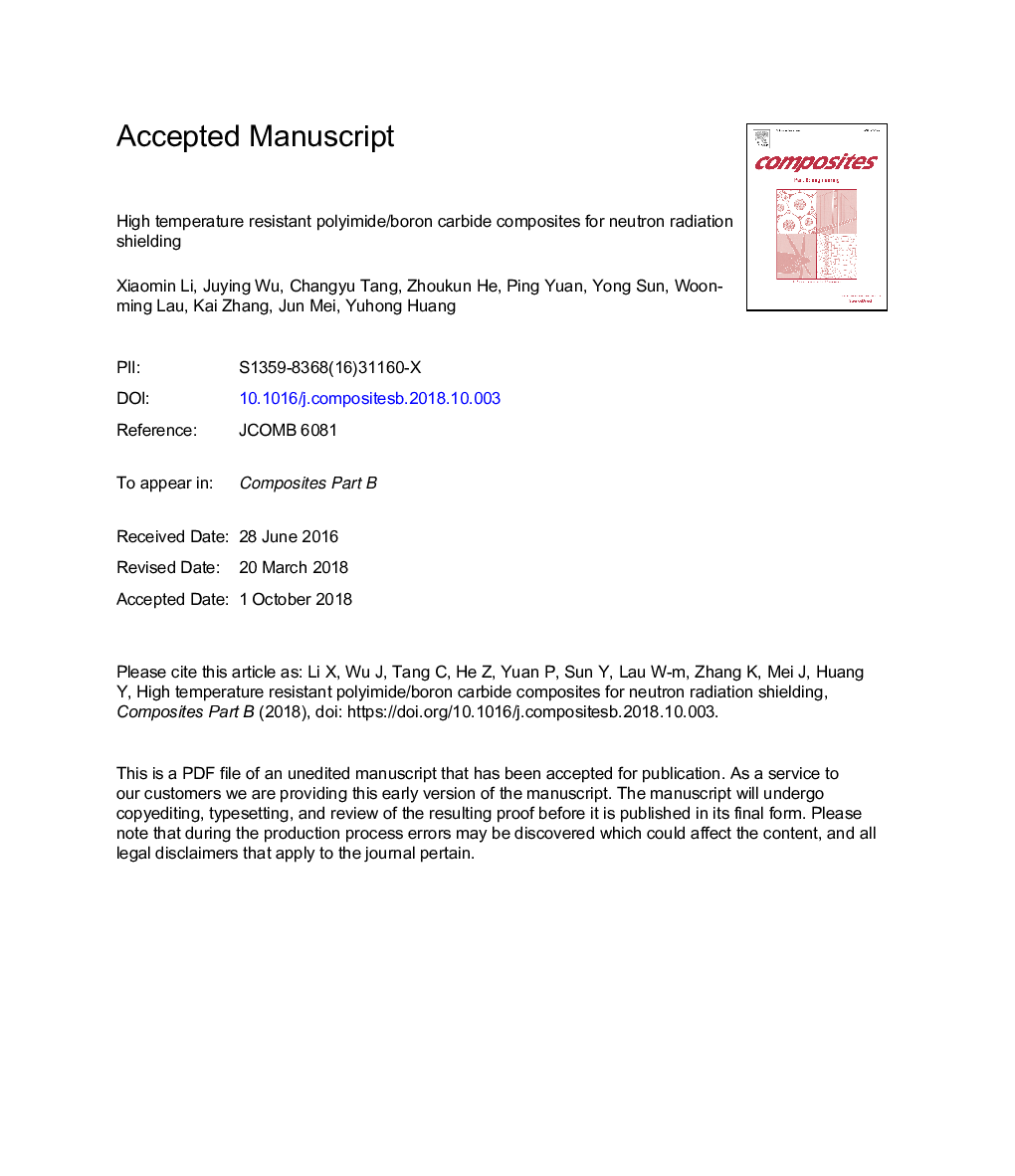| Article ID | Journal | Published Year | Pages | File Type |
|---|---|---|---|---|
| 11016280 | Composites Part B: Engineering | 2019 | 21 Pages |
Abstract
Boron carbide (B4C) is an important type of neutron radiation shielding material with relatively high efficiency due to the high content of 10B element. Incorporation of B4C particles into polymer to prepare high-performance neutron radiation shielding material has become more and more important for the safe operation of nuclear power in the defense industry and nuclear power plant. The polyimide/B4C composite films with different micro-sized B4C contents were successfully prepared by in-situ polymerization. Silane coupling agent KH550 was employed to functionalize B4C particles to improve the dispersion of B4C particles in the polyimide matrix with strengthened interfacial interaction. As shown that the micro-sized B4C functional particles can be well dispersed in the BPDA/ODA polyimide matrix. With the B4C content increase, thermal stability of the polyimide/B4C composite films can be significantly improved, even mechanical properties partly declined. Meanwhile, the polyimide/B4C composite films exhibit good thermal neutron radiation shielding properties. The neutron permeability I/I0 changes exponentially with the change of B4C content. When the B4C content is increased to 30â¯wt%, the polyimide/B4C composite films show optimum properties combination with thermal decomposition temperature (Td10) of 622â¯Â°C, neutron permeability (I/I0) of 0.24 (800â¯Î¼m in thickness), and tensile strength of 406â¯MPa. The composite thus shows great potential for use in applications which require materials with high thermal stability and neutron radiation shielding ability, such as fusion reactor system and nuclear waste disposal.
Related Topics
Physical Sciences and Engineering
Engineering
Engineering (General)
Authors
Xiaomin Li, Juying Wu, Changyu Tang, Zhoukun He, Ping Yuan, Yong Sun, Woon-ming Lau, Kai Zhang, Jun Mei, Yuhong Huang,
